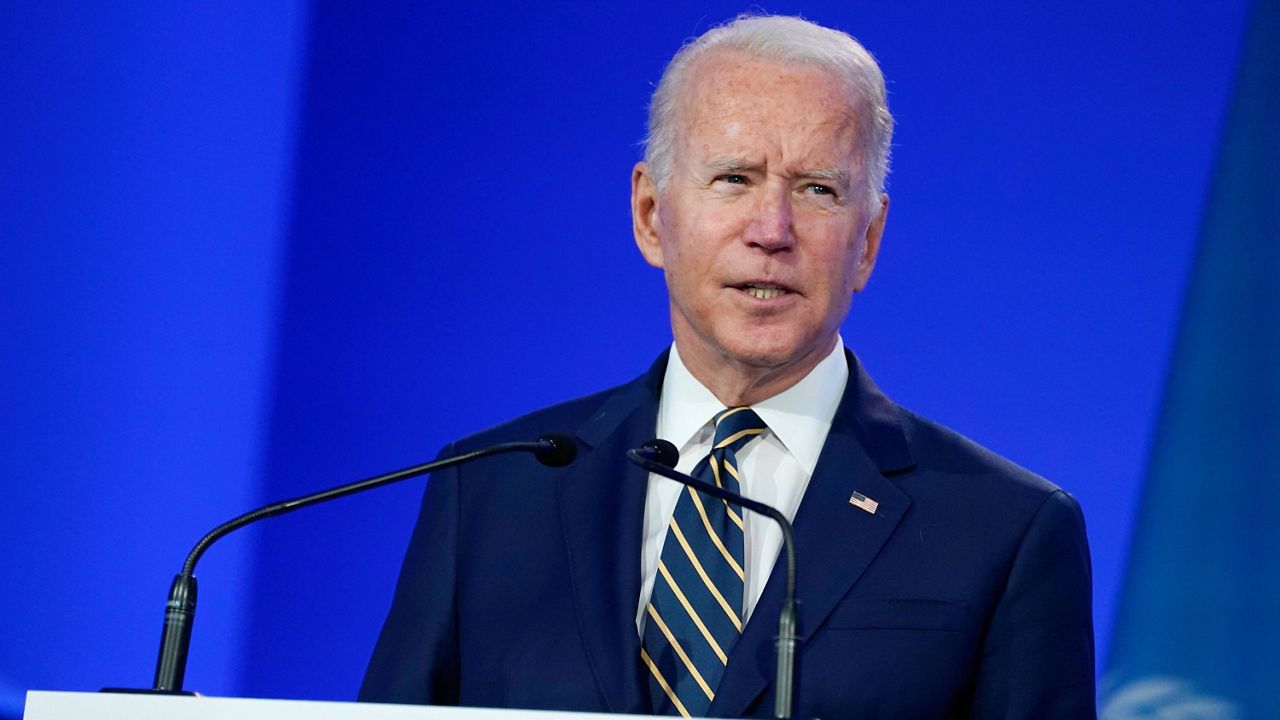Calling it “a cancer within the body of societies,” the Biden administration on Monday released the first-ever U.S. strategy aimed at combating corruption worldwide.
What You Need To Know
- Calling it “a cancer within the body of societies,” the Biden administration on Monday released the first-ever U.S. strategy aimed at combating corruption worldwide
- The plan includes creating senior anti-corruption positions, prioritizing intelligence collection and analysis on corrupt actors and their networks, and elevating efforts to support, defend and protect watchdog groups and investigative journalists who expose corruption
- Officials are also hoping to enact new regulations that will make it more difficult to use opaque corporate structures or real estate deals to hide illicit activities by requiring more transparency
- The Biden administration also plans to step up its efforts to make corruption a bigger issue on the world stage, including by reevaluating foreign aid and expanding U.S. anti-corruption assistance to other countries
The sweeping new plan follows President Joe Biden’s announcement in June that he was declaring corruption a core U.S. national security interest. That triggered a 200-day review by federal departments and agencies to identify ways the government could improve its anti-corruption efforts.
“Corruption threatens United States national security, economic equity, global anti-poverty and development efforts, and democracy itself,” Biden said June 3. “But by effectively preventing and countering corruption and demonstrating the advantages of transparent and accountable governance, we can secure a critical advantage for the United States and other democracies.”
The strategy includes creating senior anti-corruption positions, prioritizing intelligence collection and analysis on corrupt actors and their networks, and elevating efforts to support, defend and protect watchdog groups and investigative journalists who expose corruption.
Officials are also hoping to enact new regulations that will make it more difficult to use opaque corporate structures or real estate deals to hide illicit activities by requiring more transparency. The proposed rules first require a public comment period.
The Biden administration also plans to step up its efforts to make corruption a bigger issue on the world stage, including by reevaluating foreign aid and expanding U.S. anti-corruption assistance to other countries.
The White House says the list of ways corruption adversely impacts society is a long one.
“Corruption robs citizens of equal access to vital services like health care and education,” a senior administration official told reporters Sunday. “It downgrades the business environment, can exacerbate inequality. It's often linked to human rights violations. It can drive migration. It undermines rule of law, and in so doing, makes all forms of government less effective and less trusted.”
The practice of using U.S. real estate purchases to launder ill-gotten gains also raises housing costs, pricing out families from homeownership, the White House said.
“For too long, the U.S. real estate market has been susceptible to being manipulated and used as a haven for the laundered proceeds of illicit activity, including corruption,” said another senior administration official. “Our real estate market is a relatively stable store of value. It can be opaque, and there are gaps in industry regulation.”
Monday’s announcement comes in the run-up to the inaugural Summit on Democracy, a virtual meeting of representatives from 110 countries that Biden is hosting Thursday and Friday. The summit aims to “set forth an affirmative agenda for democratic renewal and to tackle the greatest threats faced by democracies today through collective action,” according to the State Department.
Russia and China were left off the invite list, prompting the two powers’ ambassadors to write a rare joint op-ed in The National Interest that called their exclusion “an evident product” of the United States’ “Cold-War mentality” and saying the summit would “stoke up ideological confrontation and a rift in the world, creating new ‘dividing lines.’”
Ryan Chatelain - Digital Media Producer
Ryan Chatelain is a national news digital content producer for Spectrum News and is based in New York City. He has previously covered both news and sports for WFAN Sports Radio, CBS New York, Newsday, amNewYork and The Courier in his home state of Louisiana.




